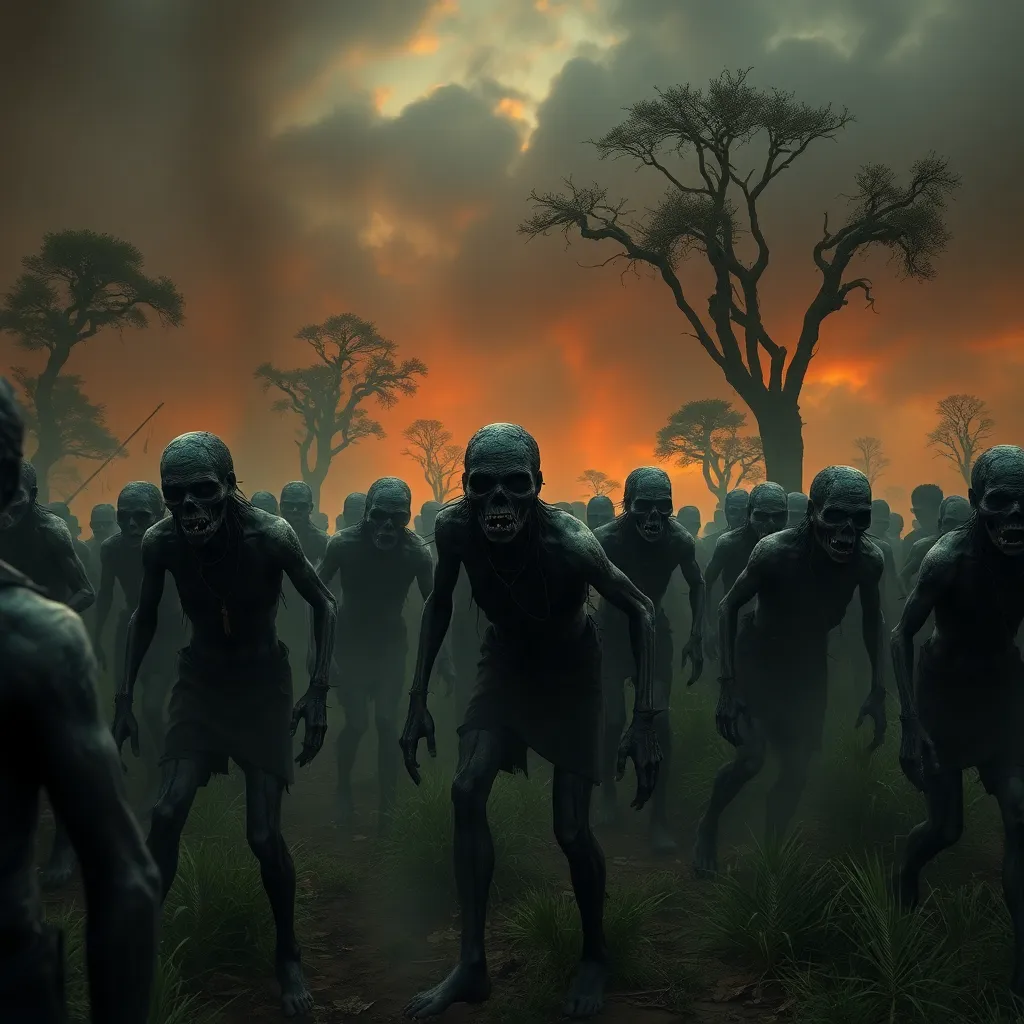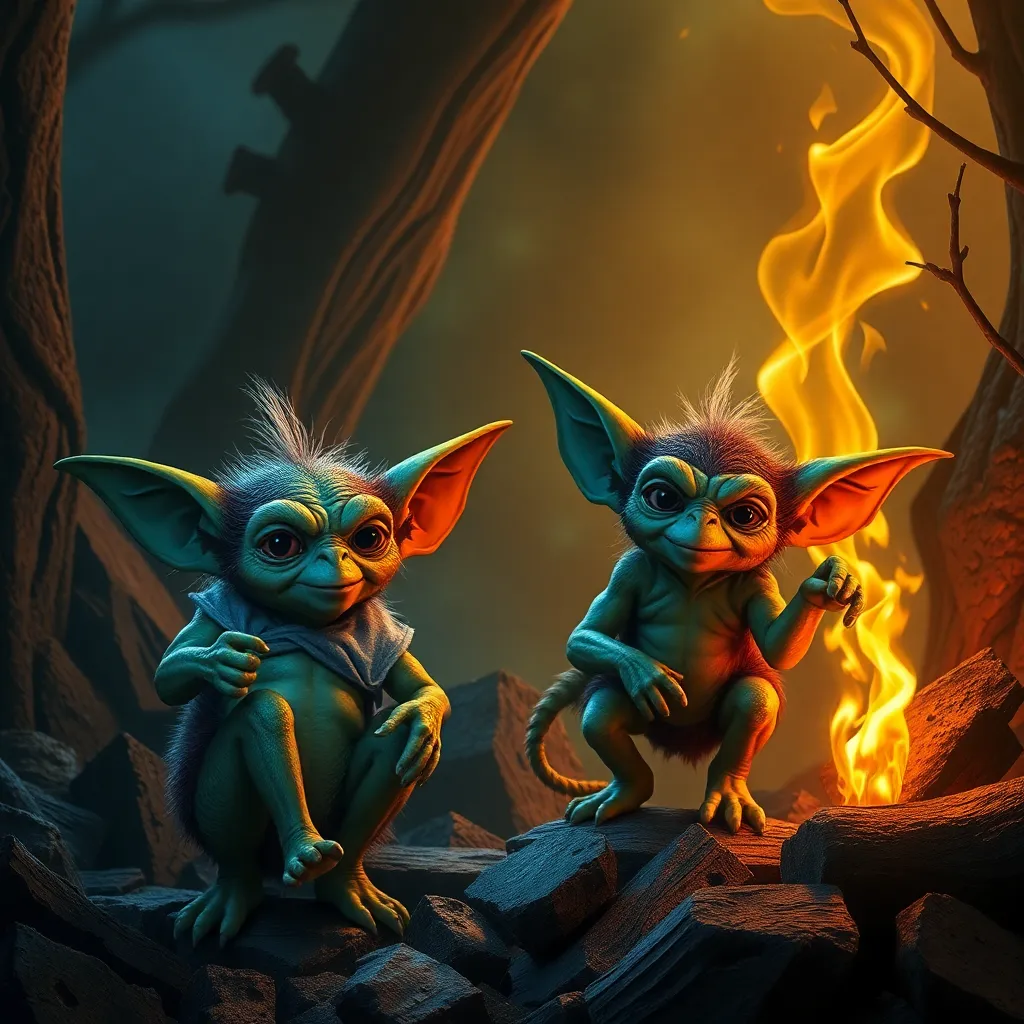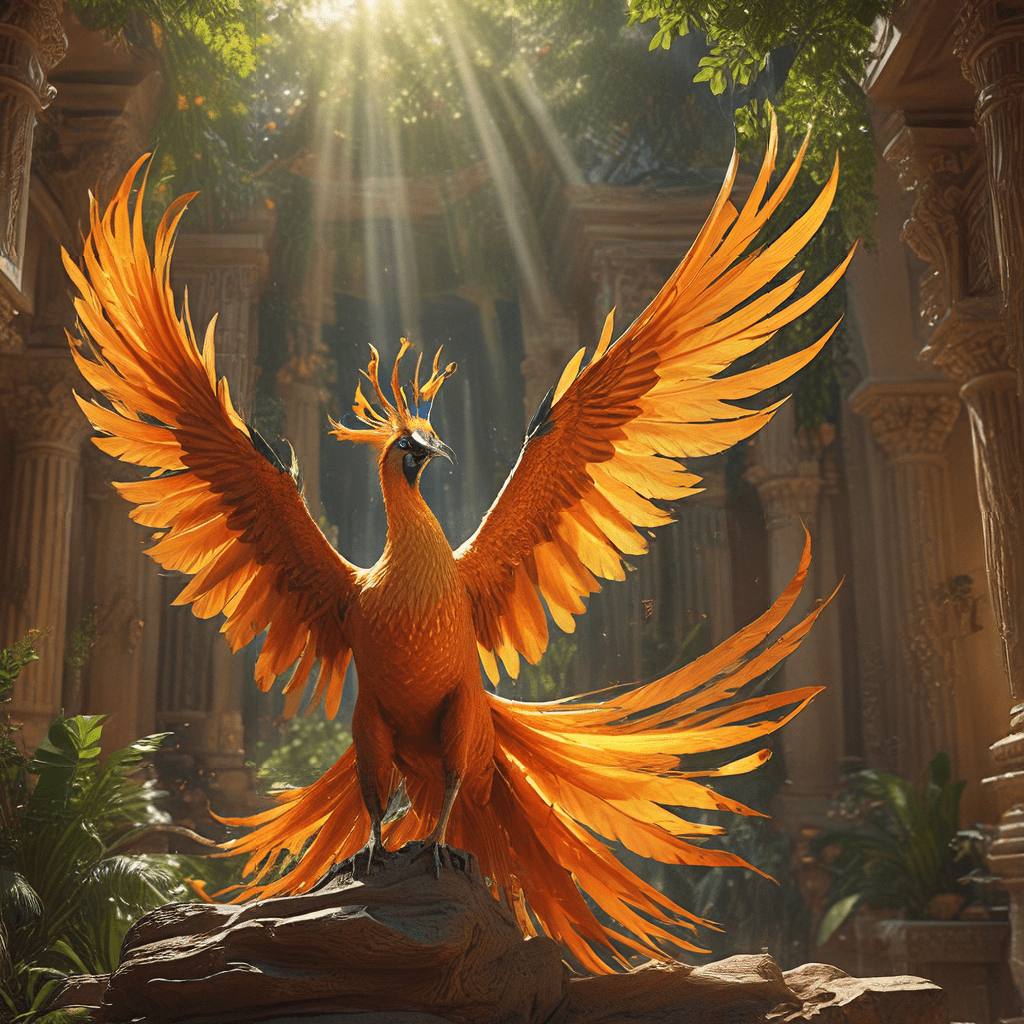The Walking Dead: Unveiling the Origins of Zombie Myths in African Folklore
I. Introduction
“The Walking Dead,” a cultural phenomenon that has captivated audiences worldwide, delves deep into the realm of the undead, exploring themes of survival, humanity, and morality in a post-apocalyptic setting. Its success can be attributed not only to its gripping narrative and character development but also to its roots in various cultural myths and folklore, including the rich tapestry of African traditions.
This article aims to uncover the origins of zombie myths in African folklore, highlighting how these ancient beliefs have influenced contemporary representations of the undead. By examining the characteristics, historical context, and specific folklore surrounding the undead, we can gain insight into how African traditions have shaped modern narratives in popular culture.
II. The Concept of the Undead in African Folklore
In various African cultures, the concept of the undead is multifaceted and often intertwines with beliefs about ancestors and the spiritual world. The undead are generally perceived as beings that have not fully transitioned to the afterlife, often possessing traits that blur the line between life and death.
- Definition and Characteristics: The undead may be seen as spirits of the deceased who return to the living world, often with a purpose that may range from seeking justice to delivering warnings.
- Comparisons with Western Zombie Depictions: Unlike the mindless, flesh-eating creatures of Western cinema, African undead often retain some semblance of their former selves and are deeply connected to cultural beliefs about life after death.
- Importance of Ancestral Spirits: In many African cultures, ancestral spirits are revered, and their presence is believed to guide and protect the living, reflecting a more complex relationship with the idea of the undead.
III. Historical Context of Zombie Myths
The term “zombie” itself has a fascinating etymology, tracing its origins to the Kongo word “zumbi,” which refers to a spirit or a corpse. The historical context behind this term reveals much about the development of zombie myths in Africa.
- Origins of the Term “Zombie”: The word “zombie” is thought to have entered the English language through Haitian Vodou, where it referred to a reanimated corpse controlled by a sorcerer.
- Historical Events Influencing Development: The transatlantic slave trade and colonialism significantly influenced the portrayal of the undead, intertwining the fears and realities of oppression with mythological constructs.
- Role of Colonialism and Slavery: The experiences of enslaved Africans and their descendants contributed to the evolution of zombie myths, serving as a metaphor for lost autonomy and identity.
IV. Specific African Folklore and Zombie Myths
Several African cultures have their unique interpretations of the undead, often showcasing variations that reflect their societal values and historical experiences.
- Haitian Vodou and Its African Roots: Vodou, which blends African spirituality with elements of Catholicism, includes beliefs about zombification, where a sorcerer can trap the soul of a person, rendering them a zombie.
- The Legend of the “Zombi” in West African Cultures: In many West African traditions, the “zombi” is seen as a person who has been reanimated through magical means, often as a result of sorcery.
- Variations Across Regions: From the “Mami Wata” water spirits of West Africa to the “Tokoloshe” of Southern Africa, the interpretations of the undead are diverse and rich, each carrying significant cultural weight.
V. The Role of Magic and Ritual in Zombie Narratives
Magic and ritual play a crucial role in the narratives surrounding the undead in African folklore. These practices often serve as a means of connecting with the spiritual world and understanding the mysteries of life and death.
- Significance of Magic: Magic is deeply embedded in African spiritual practices, used to communicate with ancestors or manipulate spiritual forces.
- Rituals Associated with Reanimation: Specific rituals are believed to invoke the spirit of the dead, allowing practitioners to interact with the undead.
- Case Studies: For instance, in certain regions, rituals may involve the use of herbs, chants, and offerings to bring back a loved one or to control a spirit.
VI. The Influence of African Folklore on Modern Zombie Narratives
Contemporary zombie films and literature owe much to the rich traditions of African folklore. The archetypes and narratives established in these stories have permeated modern storytelling, including popular series like “The Walking Dead.”
- Shaping Contemporary Narratives: African myths have significantly influenced how zombies are portrayed in media, often highlighting themes of oppression, survival, and the human condition.
- Portrayal in “The Walking Dead”: The series incorporates elements reminiscent of African beliefs, particularly in its exploration of morality, death, and the survival of the human spirit amid chaos.
- Character Analysis: Characters in “The Walking Dead” often reflect traits seen in traditional folklore, such as resilience, community, and the struggle against forces beyond their control.
VII. Cultural Misunderstandings and Appropriations
While the influence of African folklore in modern narratives is notable, it also raises concerns regarding cultural misunderstandings and appropriations.
- Challenges of Representation: Accurately representing African folklore in Western media poses significant challenges, often leading to oversimplifications or misinterpretations.
- Dangers of Cultural Appropriation: The commercialization of zombie myths can strip them of their cultural significance, reducing profound beliefs to mere entertainment.
- Importance of Respect: It is essential for creators to engage with these narratives respectfully, acknowledging their origins and the cultural contexts from which they arise.
VIII. Conclusion
In summary, the exploration of zombie myths in African folklore reveals a rich and complex tapestry that has significantly influenced modern interpretations of the undead. The characteristics of the undead, their historical context, and the cultural practices surrounding them provide a deeper understanding of the narratives we encounter today.
As we reflect on the enduring legacy of African folklore in shaping zombie myths, it becomes clear that recognizing and respecting these cultural origins is vital for meaningful storytelling. By honoring the past, we can create narratives that resonate with authenticity and respect, bridging the gap between cultures and celebrating the richness of human experience.



